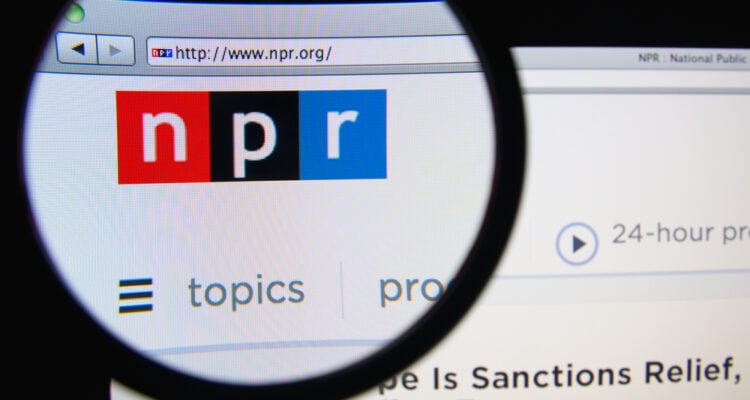Uri Berliner had been suspended after slamming National Public Radio coverage, including of Israel’s war against Hamas.
By Batya Jerenberg, World Israel News
A veteran editor resigned from National Public Radio Wednesday after being suspended for having written an article for another outlet in which he accused his employer of losing the public’s trust by catering exclusively to progressive extremists.
Uri Berliner, who worked for NPR for 25 years and was its business editor, posted on X his resignation letter in which he wrote, “I cannot work in a newsroom where I am disparaged by a new CEO whose divisive views confirm the very problems at NPR I cite in my Free Press essay.”
While NPR always was of “a liberal bent,” he wrote last week on the online news site, it used to have “an open-minded, curious culture.” This has changed in recent years, he charged, with the outlet purveying “the distilled worldview of a very small segment of the U.S. population.”
Berliner defined this segment as “overwhelmingly white and progressive, and clustered around coastal cities and college towns.”
This is “devastating,” he charged, “both for its journalism and its business model.”
The shift began after the 2016 American elections in which Donald Trump defeated Hillary Clinton, he wrote, where the station actively supported those defaming Trump over his alleged collusion with Russia.
When the charges were disproven, the outlet “move[d] on with no mea culpas” and no “transparency,” which “shatters [the public’s] trust,” the journalist noted.
It continued with leftist-slanted coverage of other top stories, such as the origins of the coronavirus pandemic.
The death of George Floyd then kicked off an inculcation of woke policy on race and identity, he charged.
“Most recently,” he admitted, “we have approached the Israel-Hamas war and its spillover onto streets and campuses through the ‘intersectional’ lens that has jumped from the faculty lounge to newsrooms. Oppressor versus oppressed.”
“That’s meant highlighting the suffering of Palestinians at almost every turn while downplaying the atrocities of October 7, overlooking how Hamas intentionally puts Palestinian civilians in peril, and giving little weight to the explosion of antisemitic hate around the world,” he added.
Berliner wrote that he had often brought up with top managers the lack of diversity both in the news coverage and make-up of the newsroom, with not a single Republican among the staff, but was met with “profound indifference.”
Top staffers at NPR pushed back on Berliner’s accusations, calling them full of “errors” and made in “bad faith,” while insisting that their coverage of world and local events reflected the “diversity” of Americans’ opinions.
Regarding Israel specifically, Steve Inskeep, host of NPR‘s “Morning Edition” and “Up First,” defended his work on the war.
“After the Oct. 7 attack, my first interview was with a member of the Israeli war cabinet,” he wrote on Substack. “When I went to Israel, my first story was on a Hamas missile attack; my second was on a Hezbollah attack; my third was on a hostage family.”
“Later,” he continued, “I interviewed Prime Minister Benjamin Netanyahu. I have also interviewed many Palestinians and even a member of Hamas, covering all sides as a journalist should.”
An NPR spokesman told the Wall Street Journal that Berliner’s article was a “bad faith attack that follows an established playbook, as online actors with explicit agendas work to discredit independent news organizations.”





